Picking The Right Lawn Mower
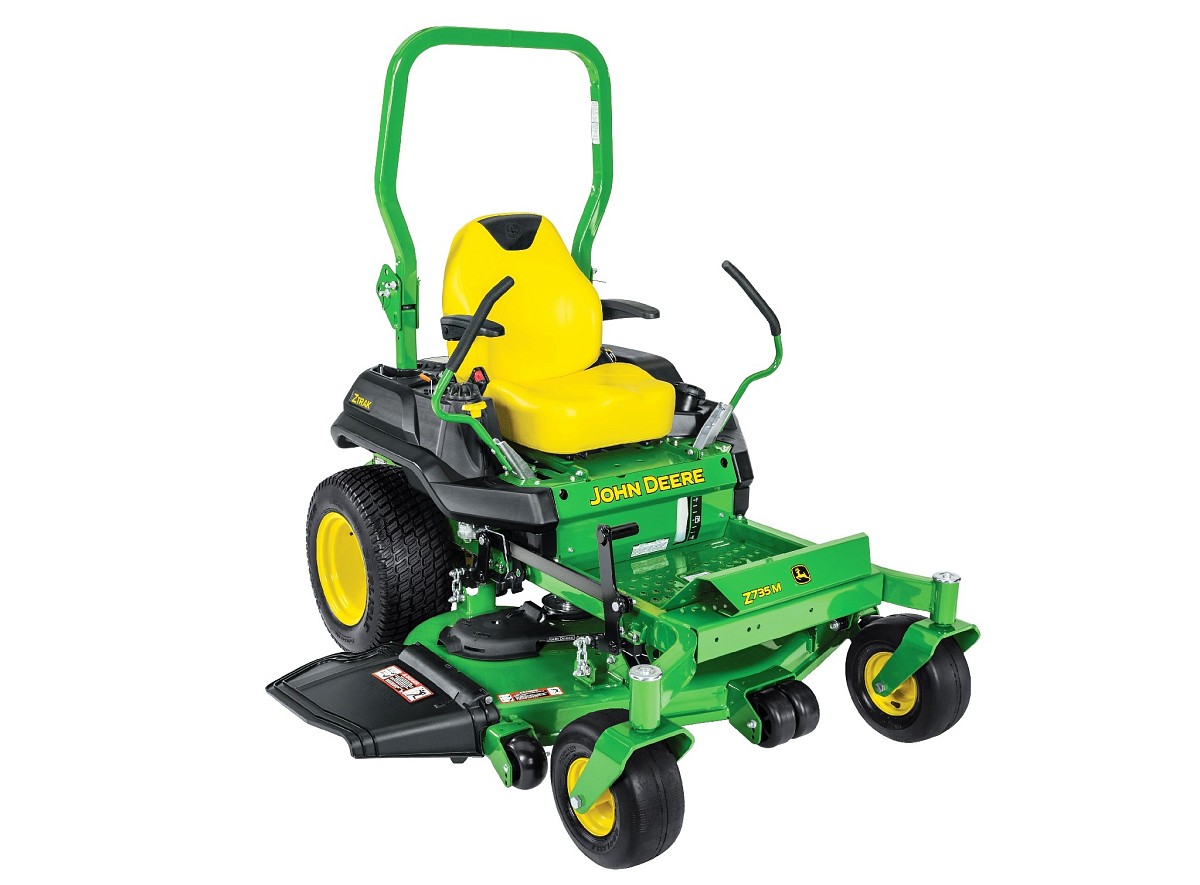 Picking the right lawn mower will tremendously improve your mowing experience. Find out how to choose a lawn mower, with the professional advice of Kim Ridel, Tactical Marketing Manager, John Deere riding lawn equipment.
Picking the right lawn mower will tremendously improve your mowing experience. Find out how to choose a lawn mower, with the professional advice of Kim Ridel, Tactical Marketing Manager, John Deere riding lawn equipment.
Different Mower Types
There are two types of riding mowers: conventional front-engine lawn tractors and new zero-turn-radius mowers, with rear engine and hand controls for speed and direction. “Zero-turn” means you can literally turn on a dime.
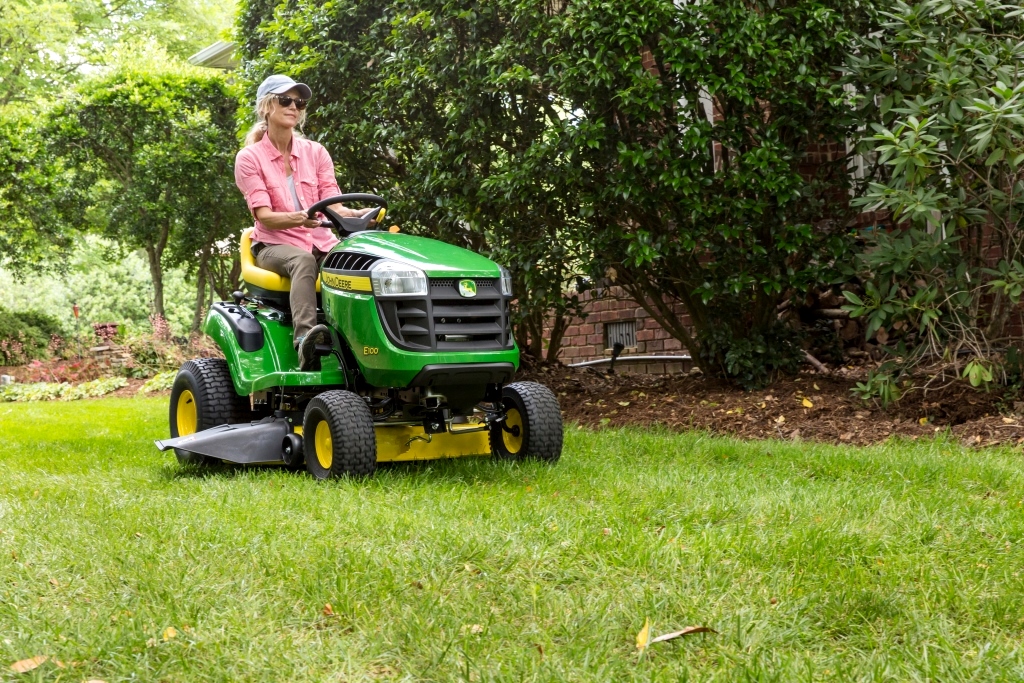
Picking the Right Lawn Mower: What to Consider
No two yards – or property owners -- are the same. Consider the following factors before purchasing a mower.
Size of the area you’ll be mowing. This is different from your total property size, which also includes your home’s built footage, garden, driveway, and paths. Most zero-turn mowers go slightly faster than traditional lawn tractors, making them ideal for homeowners with large yards who don’t want to spend the whole weekend mowing their grass.
Grass. Take into account your grass type, such as whether it is cool-season or warm-season. Also bear in mind the desired grass height. To illustrate: in the Northeast, homeowners typically cut their grass to 3 ½ - 4 ½ inches, but in Florida where St. Augustine grass is popular, people like to keep it a lot shorter.
Topography. When your property has a lot of steep inclines, a tractor is going to be more appropriate than a zero-turn mower. If you’ll have to mow around a lot of obstacles, like trees or flowerbeds, a zero-turn mower can be the best solution. John Deere also offers 4-wheel steering lawn tractors, which allow you to maneuver around objects easily.
Local terrain and climate. Your local terrain is important too. For instance, in a very sandy area you might want a thicker gauge steel on your mower deck, to prevent wear over time. If you’re in the Midwest or the Northeast, choosing a tractor mower, rather than a zero-turn, will allow you to blow snow with your machine in the winter, as well as cutting grass in warm weather.
Environmental friendliness. Balance fuel consumption, quietness, and mowing comfort. When energy efficiency is a priority, you may prefer one of the electronic fuel-injected options rather than a traditional carbureted-gas model.
Obtain an in-depth analysis of the best mower for your needs by consulting the “Help Me Decide” guide.
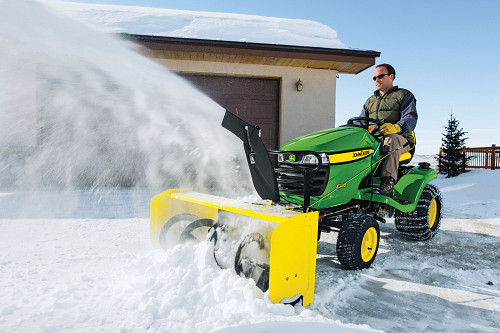
Lawn Mower Maintenance
If lawn mower care will be DIY, look for easy maintenance. John Deere offers several products to simplify servicing your mower:
- home maintenance kit, including necessary parts such as filters
- Easy Change™ 30-Second Oil Change System, which allows you to change your mower’s oil in seconds
- Mower Plus app with valuable mowing tips and maintenance reminders, for John Deere 100 Series, S240, X300, X500, X700, Z200 through Z600, as well as many similar-sized older products and even some competitors’ mowers
When to Replace Your Mower
Many homeowners tend to hold onto their mower forever. But here’s a basic rule: if you’re investing more in repairs than you’ll see as a return when you sell or trade in your current mower, it’s time to start thinking about a replacement.
And as zero-turn mowers are becoming more mainstream, you might want to purchase one in addition to your tractor.
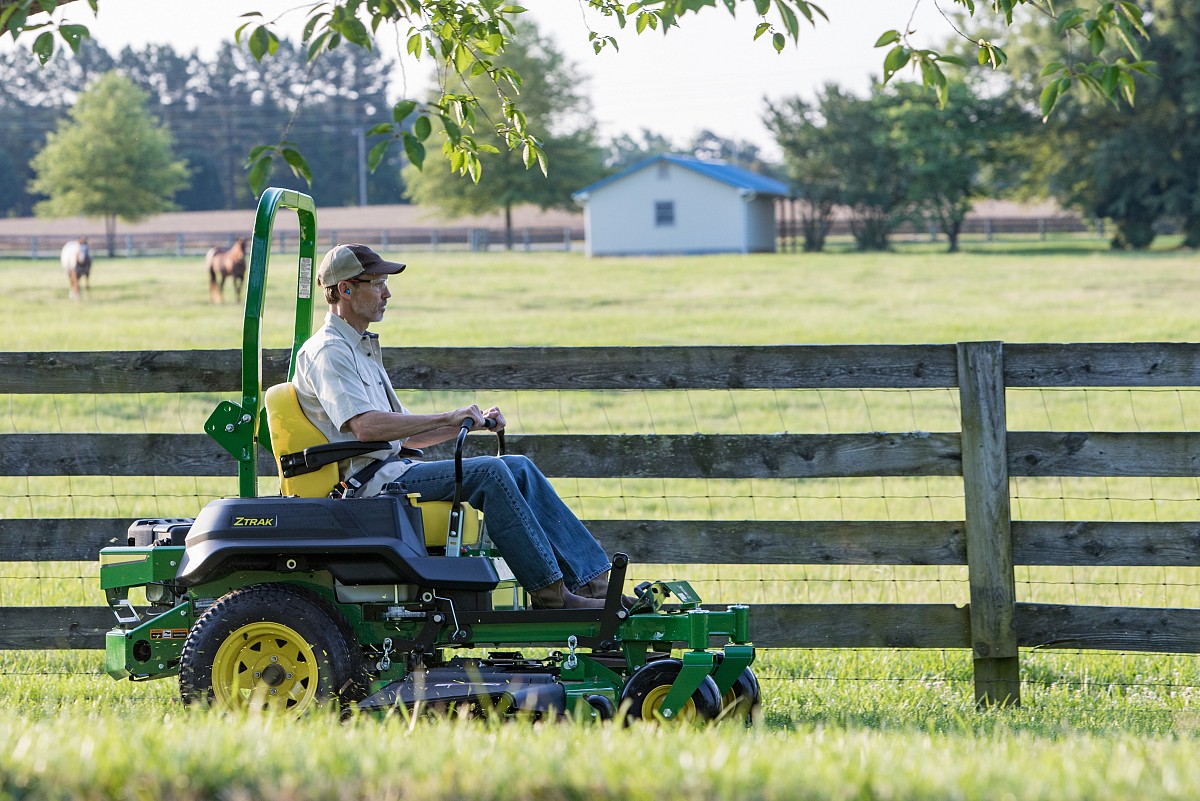
Insider Tips for a Good Mowing Experience
Think about what’s important to you when shopping for a mower. Everybody would like a healthy lawn, but some homeowners are obsessed, while others just want to “make tall grass short grass.”
Choose a comfortable seat, with good suspension. This is especially important if you have a huge yard, where you may be mowing for a couple of hours at a time.
Follow the 1/3 rule. For a beautiful lawn, never cut off more than the top third of your grass blades.
Mulch as you mow. You’ll be depositing natural fertilizer back into your soil.
Alternate mowing direction and pattern. This avoids beating down a path in the grass and achieves a smoother-looking lawn.
Hire a pro as required. Consider hiring a professional landscaper if your yard needs specialized lawn care, such as dethatching, aeration, or hydroseeding.
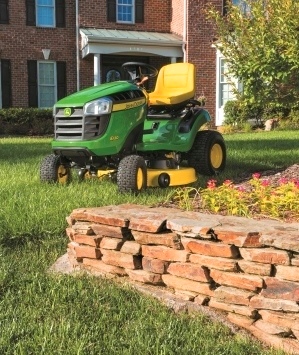
Laura Firszt writes for networx.com.
Looking for a Pro? Call us (866) 441-6648

Landscaping Average Costs
Landscapers Experiences

Roof Repair To Keep Out Miami Rainstorms

I Built A Concrete Retaining Wall As A Defense Against El Nino



